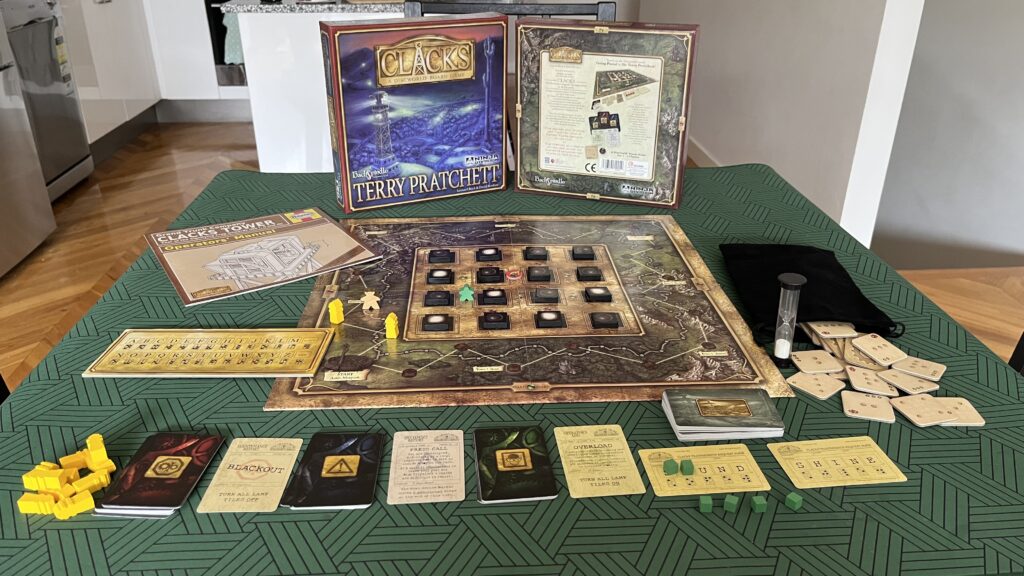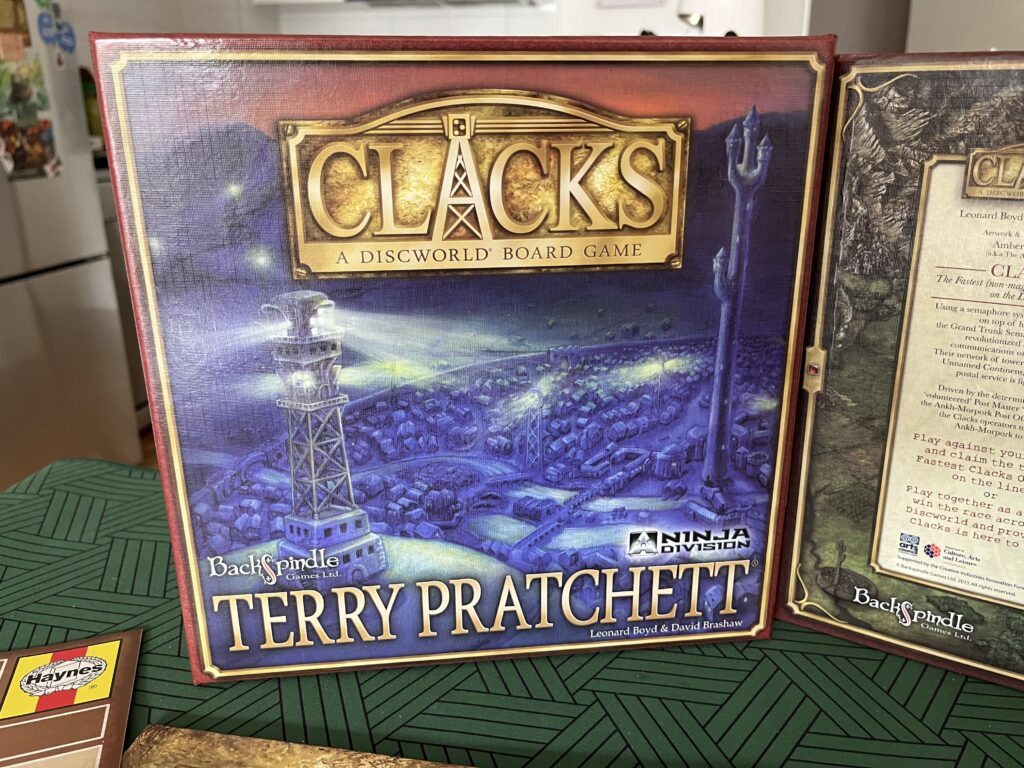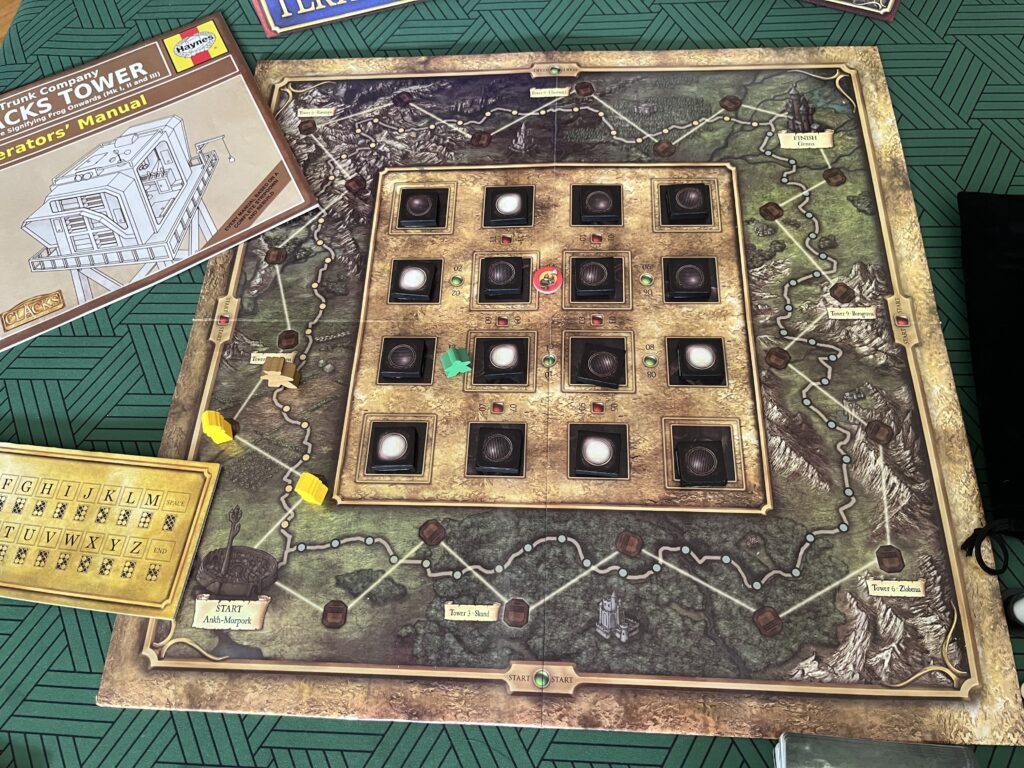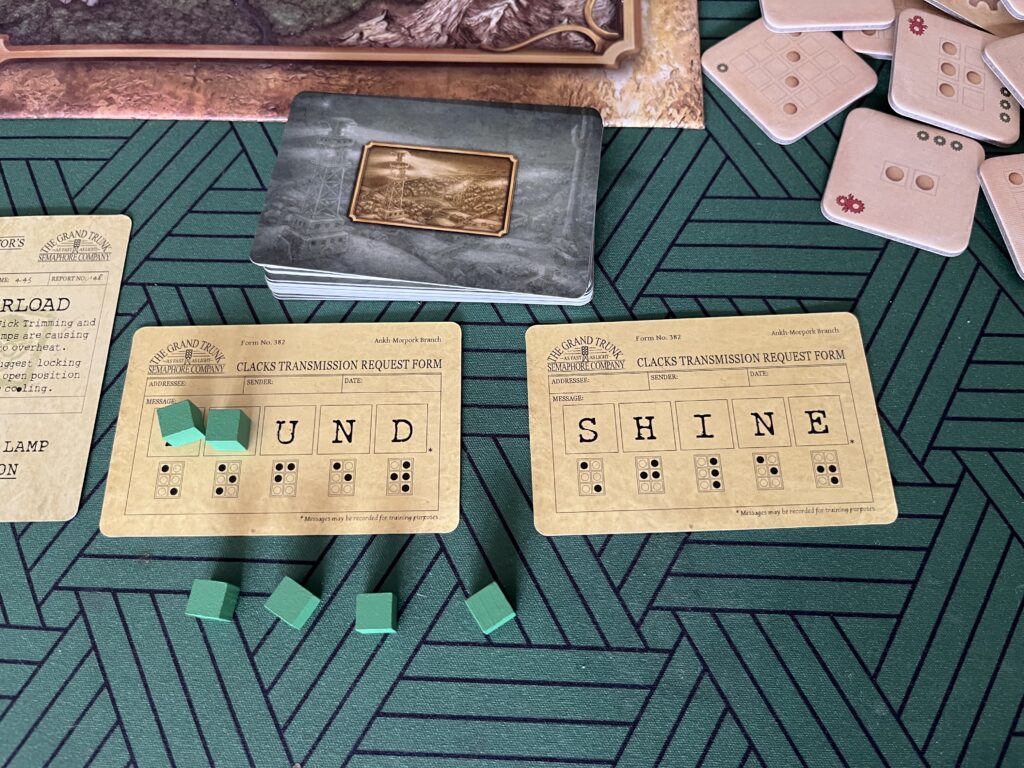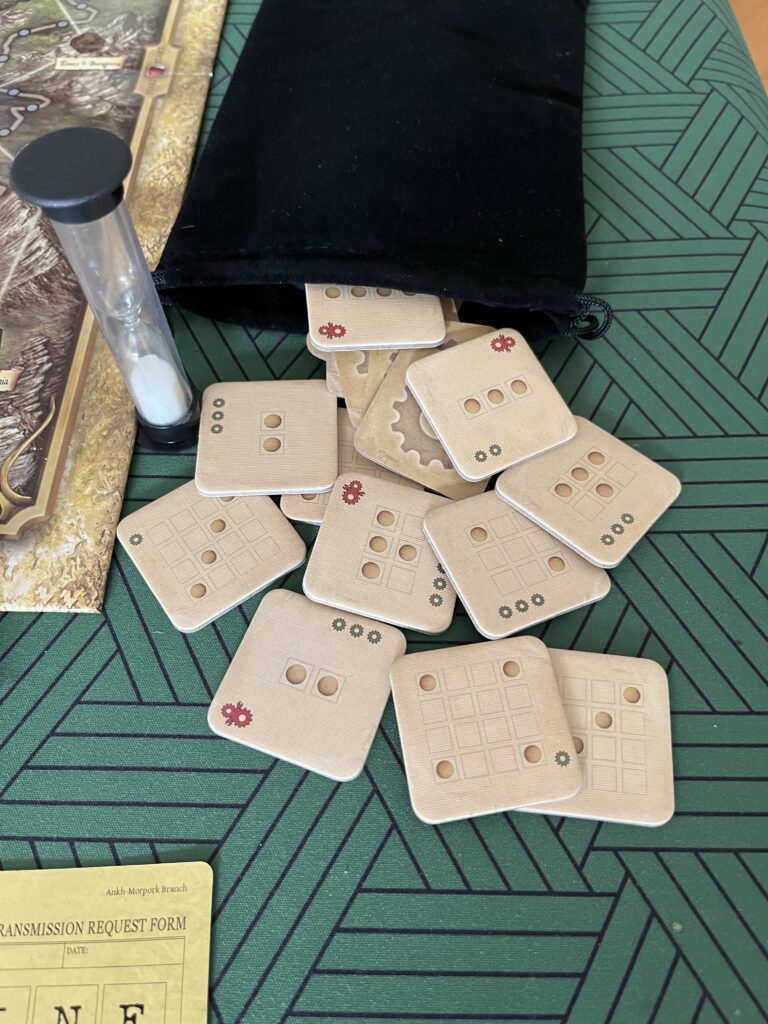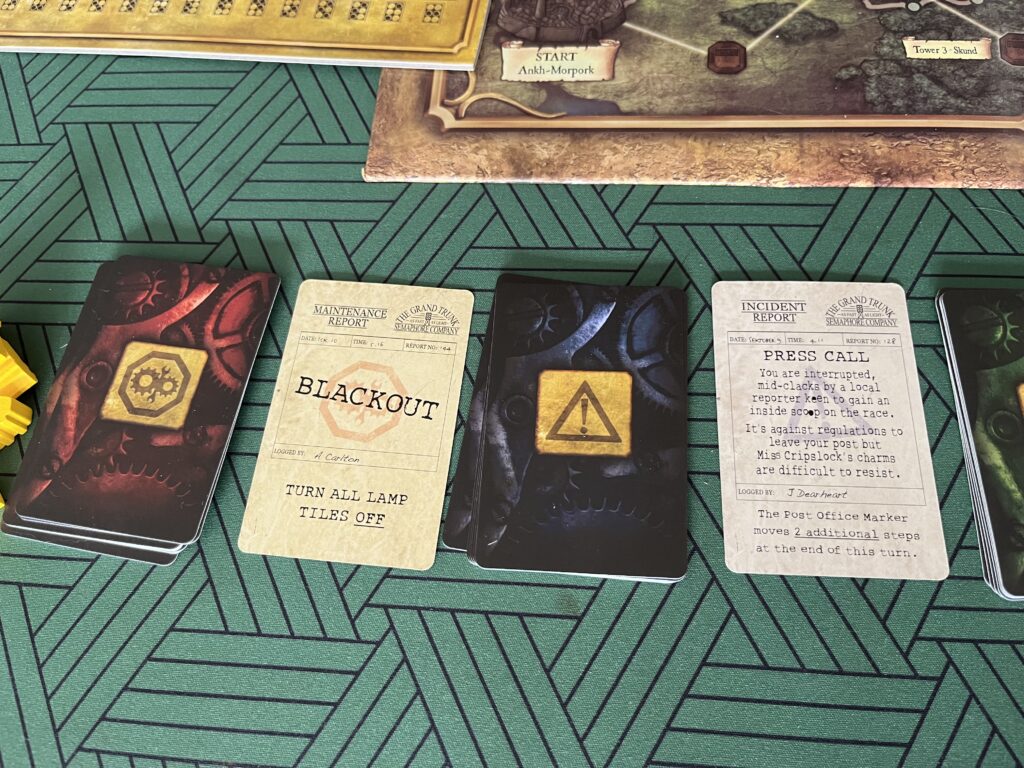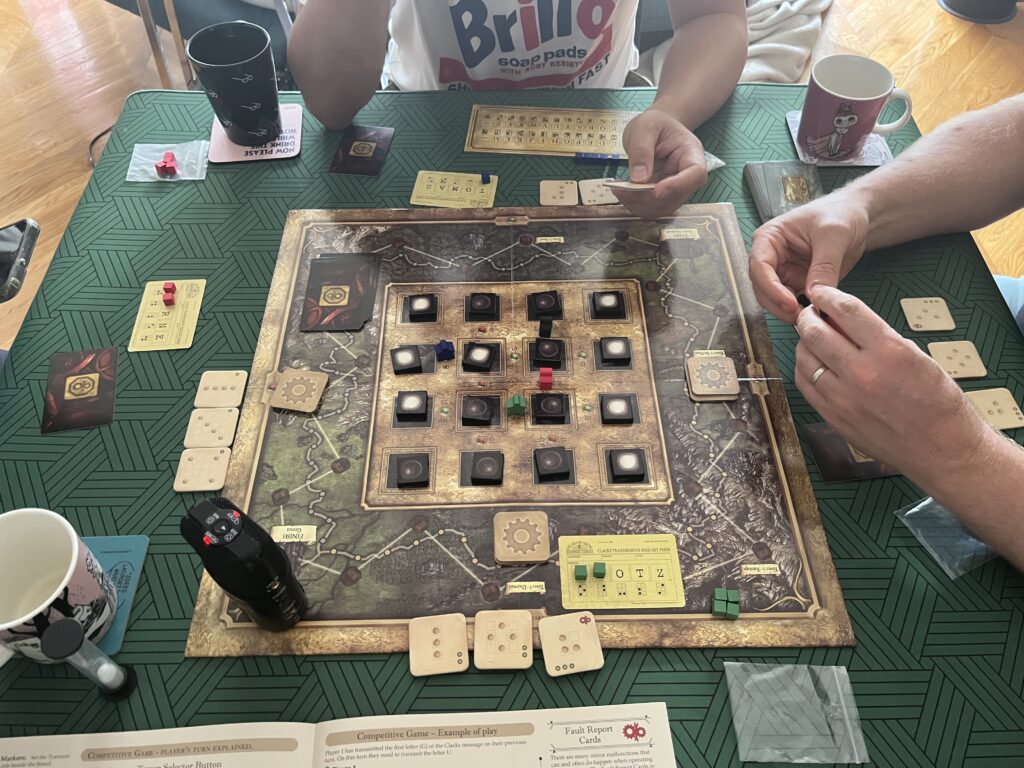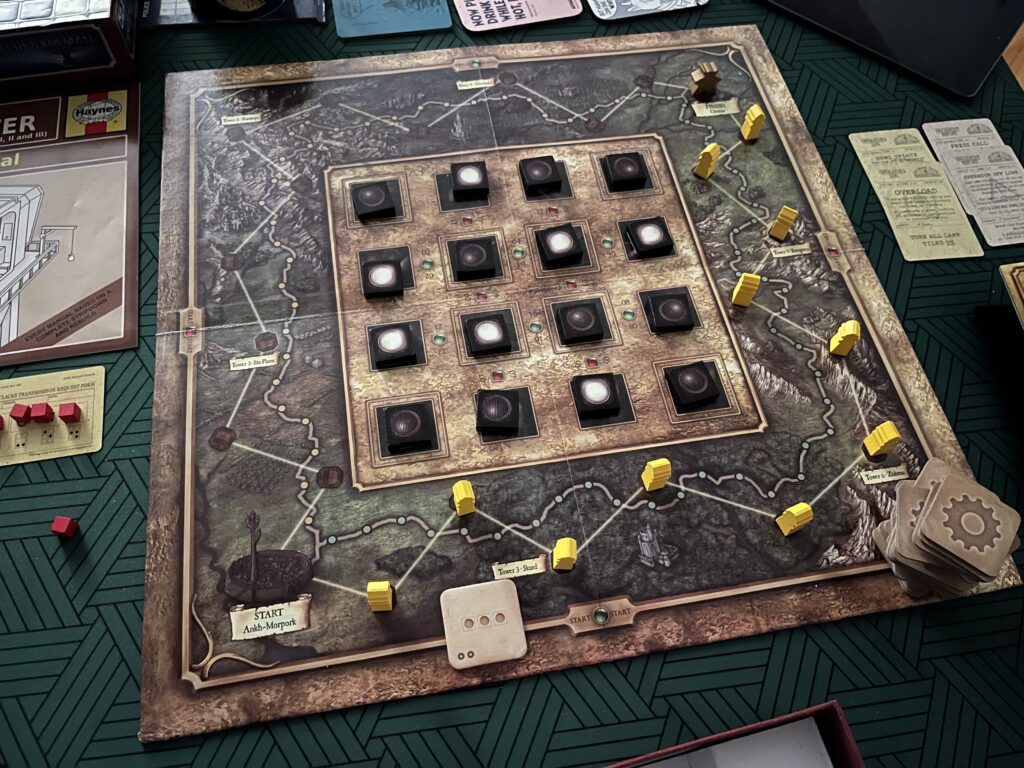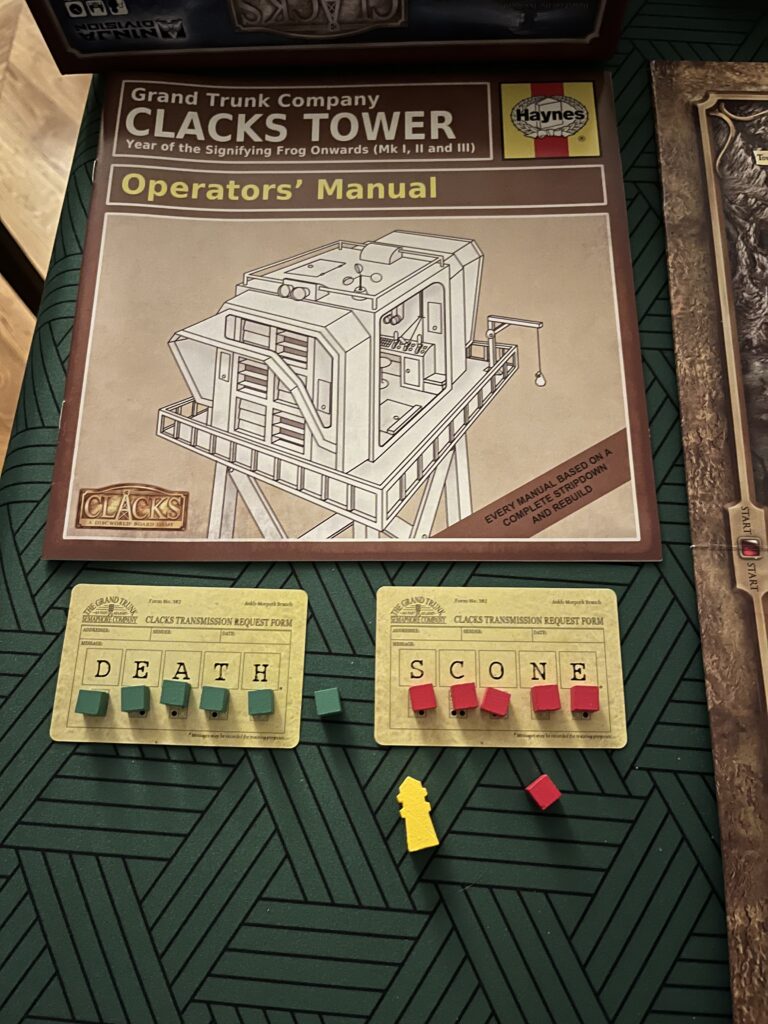#Pratchat28 Notes and Errata
Theses are the show notes and errata for episode 28, “All Our Base Are Belong to You“, featuring guest Steve Lamattina, discussing the 1992 novel Only You Can Save Mankind.
- This episode’s title is a play on the famous meme “All Your Base Are Belong to Us”. The phrase is from the intro sequence of Japanese shoot-’em-up game Zero Wing. The English version was produced for the Sega Megadrive in 1992, and the questionable translation was discovered and popularised as a meme, then celebrated in a song and accompanying music video posted on the web site NewGrounds in 2001. The video shows the phrase photoshopped into a variety of real world locations. You can watch the video on YouTube here.
- The vampire series mentioned by Steve is Christopher Pike’s Last Vampire, also known as Thirst, consisting of nine books published between 1994 and 2013. It chronicles the life of Sita, a vampire born 5,000 years ago in India. Ben mentions The Last Werewolf (2011), the first in a trilogy of books by Glen Duncan. Neither series is appropriate for children.
- The vampires of Middle-Earth are only mentioned briefly in Tolkien’s writings, but we never learn much about them. Barrow-wights are evil spirits that fear the sun and possess and animate human corpses. The origins of orcs are not entirely clear. Tolkien supplied several partial explanations, all the opinions of characters in the fiction, which are variations on them being corrupted versions of existing beings, because Morgorth could not create life – only Eru Ilúvatar, the ultimate god of Middle-Earth, could do that. In his later life Tolkien seems to have settled on the idea that orcs were corrupted from men, and even worked on changes to the history of Middle-Earth to make this make sense (originally orcs appeared before the first men did). This will all come up again in #Pratchat83, “This Time for Ankh-Morpork”.
- There are many stories revolving around “games coming to life”, or in which people are trapped inside games, wittingly or not. We mention a few videogame ones: the Disney film TRON (and it’s sequel and some spin-offs); the novel Space Demons and its sequels Skymaze and Shinkei, by Gillian Rubenstein; and the Gamer’s Quest series of books by George Ivanoff. There’s also the films Jumanji and Zathura, about magical board games, which started as books by Chris Van Allsburg. You can find a list of other examples on the All the Tropes page for “the game come to life”.
- As Ben mentions, The Last Starfighter (1984) blurs the line of the trope a bit – the video game isn’t real, but it is a training program for starfighters in a real space war.
- In Orson Scott Card’s novel Ender’s Game (1985), based on his 1977 short story and revised in 1991, Ender is one of many children trained to fight from a young age in an orbital Battle School, using a series of games. This is supposedly to prepare them for future conflicts with the alien Formics, and Ender turns out to be a tactical genius, eventually given more and more difficult mission simulations. The film version in 2013 starred Asa Butterfield as Ender and also features Harrison Ford and Ben Kingsley.
- Rhianna Pratchett has worked on many games, including the humorous Lord of the Rings parody series Overlord, the modern iteration of Tomb Raider and its first sequel, Rise of the Tomb Raider, and Mirror’s Edge, among many others. She is also co-director of Narrativia, the company that holds and manages licensing rights to Terry Pratchett’s intellectual property. You can find out more at Rhianna’s website, rhiannapratchett.com, and you can follow her on social media, including Twitter, Bluesky and Mastodon. (We do!)
- The Gulf War was a conflict between Iraq – who had invaded its neighbour Kuwait over land and oil disputes – and a coalition of forces primarily from the US, Saudi Arabia, the UK and Egypt, though many other allied countries (including Australia) also participated. The war lasted for six months, beginning on 2 August 1990, and ending on 28 February 1991 with the defeat of Iraq. The US military named the operation “Desert Shield”, then “Desert Storm”, and it was commanded by General “Stormin’” Norman Schwarzkopf. It was extraordinary at the time for the extensive news footage of front-line fighting; some journalists and political commentators nicknamed it “the videogame war”, no doubt part of Pratchett’s inspiration for the novel. Towards the end of the war, an uprising against Iraqi ruler Saddam Hussein failed when promised US support was not delivered. Hussein remained the country’s ruler until his death during the later Iraq War (referenced in Pratchett’s later foreword to the novel), which began in 2003 over claims – later found to be false – that the country was stockpiling “weapons of mass destruction”.
- Wing Commander (1990; released in 1994) is probably the main inspiration for the game Only You Can Save Mankind. It contains many elements seen in the book, including the (then) graphically impressive image of the starfighter cockpit, a variety of weapons, and a higher degree of “realism” (for a given value of realism). The player is a pilot in the 27th Century Terran Confederation, fighting the aggressively expansionist lion-like species, the Kilrathi. It was a huge hit and spawned numerous expansion packs and multiple sequels. The series became famous for its use of cutscenes to advance the plot; from the third instalment these included full-motion video and many famous Hollywood actors including Mark Hamill, John Rhys-Davies, Malcolm McDowell, Clive Owen and John Hurt. The Kilrathi were originally very one-dimensional villains, but were given a more complex and sometimes sympathetic portrayal in later games. There were also novels, an animated television series in 1996, and a (very unsuccessful) live action film in 1999 starring Freddie Prinze Junior, Saffron Burrows, Matthew Lillard, Tchéky Karyo, Jürgen Prochnow and David Warner.
- Star Control II: The Ur-Quan Masters is a space adventure game created by developer Toys For Bob in 1992. The player captains a ship constructed from advanced alien technology and discovers the alien Ur-Quan have come to Earth’s part of the galaxy, destroying or enslaving every species they meet. The player is tasked with recruiting alien cultures to join the Earth in an alliance to defeat the Ur-Quan. The game is a cult classic remembered for its huge story, resource management, space battles, weird aliens and sense of humour, though its representation of women is problematic. There was one sequel, Star Control 3 (not by the original developers), and recently a prequel, Star Control: Origins (also not by the original developers). There’s an official free version of the Star Control II, originally as just The Ur-Quan Masters and later Free Stars: The Ur-Quan Masters for copyright reasons. It includes new music and the voice-acting files from a later console version of the game. In 2024, the original creators, through their new company Pistol Shrimp, crowdfunded a new sequel, Free Stars: Children of Infinity, expected to release in May 2025.
- Text adventure games, also known as “interactive fiction” or “interactive novels”, were a popular game genre in which the player types commands to perform various actions, with feedback supplied as prose. One of the biggest publishers was Infocom, whose break-out hit was the fantasy spoof Zork and its many sequels – there are hints in his works that Pratchett was a fan. Another fan was Douglas Adams, who himself penned an interactive fiction version of The Hitchhikers Guide to the Galaxy for Infocom and loved the form so much he used a sophisticated version of it for his one original video game, Starship Titanic. You can play the Hitchhikers text adventure online: the BBC hosts fancy, updated 20th anniversary and 30th anniversary editions of it. Another significant text adventure was The Hobbit, written in large part by Dr. Veronika Megler for Australian publisher Melbourne House in 1982, but there are literally thousands of them – including all the far too difficult ones described by Steve.
- The text adventure Twitter account Ben refers to is the bot “Frustrated Quests”, which you can find at @verbquests. It’s also on Mastodon at @verbquests@llull.club.
- “The Hero with the Thousand Extra Lives” is a nod to “The Hero with a Thousand Faces”, Joseph Campbell’s book in which he describes the “mono-myth” – a story which can be found in thousands of variations across many cultures. Pratchett is clearly familiar with the work as he subverts and references its tropes many times throughout the Discworld books.
- We talked with Amie Kaufman about Truckers in #Pratchat9, “Upscalator to Heaven”.
- ICQ was an early live chat program created by the company Mirabilis in 1996, though it was soon bought by AOL and later the Russian internet company Mail.Ru. Its name is not an acronym, but a short version of “I Seek You”. As early 2020 ICQ is still available, including on smartphones, though its popularity has sharply declined since its heyday of over 100 million users every day.
- IRC is an acronym for Internet Relay Chat, an early chat service in which users could log on to a server and then join channels to chat live with other users. It’s notable for being the birthplace of many of the text abbreviations now commonly used on mobile phones and across the Internet, including LOL, ROFL, IMHO, AFK and many others. It’s also where the convention of naming channels with a leading hash comes from (e.g. #general or #project-omega), now used by Slack and Discord.
- Gmail (originally Google Mail) started with a testing phase in 2004, and you could only join by being invited by another user. This ended in 2009 – as did the ability to get a gmail address that resembled your actual name.
- Mavis Beacon, of Mavis Beacon Teaches Typing fame, is not a real person. She was a fictional character created to make the program feel more personable. In early versions of the software she was only represented by a photo of Renée L’Espérance, a perfume counter worker discovered by an employee of Software Toolworks.
- The letters Steve’s Scottish teacher was reciting – properly ASDF, JKL; – are the “home row”, the keys on which a trained typist’s fingers are supposed to rest on a QWERTY keyboard. Most keyboards still have raised dots or bars on the F and J keys to allow typists to find the home row keys without looking.
- The Typing of the Dead is a 1999 typing game based on The House of the Dead 2 (1998). The original was an arcade game “rail shooter” – the character’s movement was controlled by the game, and the player used a light gun (or mouse or other controller in home versions) to shoot zombies in each new area as they investigated a creepy house. Typing of the Dead – originally released as an arcade game as well! – swapped out the light gun for a keyboard; words appear over each zombie, and the player (or players – you could have two at once) had to quickly type the matching word before the zombies reached them. The player characters in the game are even altered to be wearing computers like backpacks, with a keyboard on wearable shelf at around torso height. The game was later released on home consoles and computers.
- Johnny and the Dead was adapted in 1995 as a four-part television series by London Weekend Television for ITV, featuring George Baker and Brian Blessed as two of the prominent ghosts, with Johnny played by Andrew Falvey (whose best-known role is probably the voice of Fiver in the late 90s series of Watership Down). Johnny and the Bomb was adapted as a three-part series in 2006 by Child’s Play Television for CBBC, featuring Zoë Wanamaker as Mrs Tachyon and starring a young George MacKay – recently seen in big budget war film 1917 – as Johnny. Neither are easy to get hold of now, as they only had limited release on VHS and DVD.
- After a workshop season in 2000, the musical version of Only You Can Save Mankind debuted at the Edinburgh Fringe in 2004, with music by Leighton James House a book and lyrics by Shaun McKenna, who also wrote the musical version of The Lord of the Rings and many other theatre, television and radio programs. You can find information about the 2009 album version of the show, featuring six songs (we don’t know if that’s all of them), at ifnotyouthenwho.com. The composer’s Twitter account suggests that the musical might return in the near future!
- We should note that Johnny and the Bomb has also been adapted into a musical, available for schools to perform, as has The Amazing Maurice and His Educated Rodents. Johnny and the Dead has also been adapted for the stage, though not as a musical.
- Liz really loves The Shawshank Redemption. You can hear her speak about it in several previous episodes.
- Naomi Alderman’s The Power is an award-winning science fiction novel which describes a future matriarchy, created after women all over the world develop the supernatural power to emit electricity from their hands to protect, attack and heal. It was adapted as a television series for Amazon Prime Video in 2023.
- Alien Nation was a 1988 American sci-fi film set in the near future, a few years after a ship of alien refugees crash-lands in the American desert. The refugee occupants are a human-like species, the Tenctonese; they have been accepted as “Newcomers” in American society, but face prejudice from the humans they live with. The plot follows a human detective (James Caan in the film) and his Newcomer partner (Mandy Patinkin), the first to become a detective, as they solve crimes. The film was quite serious, but successful enough to be adapted into a television series in 1989. The series was also titled Alien Nation, but had a lighter tone and a new cast. It only lasted one full season, ending on a cliffhanger, but the story was concluded a few years later in five television movies featuring the same cast.
- The original V was an American sci-fi television show which began as a two-part mini-series in 1983. This was followed by another mini-series in 1984 and a full season of episodes from 1984 to 1985. The plot involved a seemingly human-like species of aliens, known only as “Visitors”, who arrive on Earth seemingly in peace. The original series starred Jane Badler as Diana, glamorous deputy leader of the Visitors, who memorably unhinged her jaw to swallow a rat whole in a scene where a journalist discovers the truth: the Visitors are lizard-like creatures disguised as humans, and are working to conquer the planet. (The title “V” comes from the shorthand graffiti used by the resistance against the Visitors.) A remake television series ran for two seasons from 2009 to 2011, starring Morena Baccarin as Anna, leader of the Visitors. Jane Badler appears as Anna’s mother, named Diana after her character in the original series. In both series, some of the Visitors are shown to be sympathetic to the humans.
- The Tomorrow People was an ITV sci-fi series about a group of teenagers who developed psychic powers, and sought each other out to protect themselves from governments and aliens. The original series ran from 1973 to 1979, but after reruns of the original proved popular in America, a remake was made in 1992 with a new cast and the same basic premise.
- Pokémon is a series of videogames developed for Nintendo by developer Game Freak. In the game, the player is a budding trainer of Pokémon (a name derived from “Pocket Monster”). Pokémon are creatures with a variety of special powers which can be captured and trained for battle against other Pokémon. The goal of the game is to become the greatest trainer by defeating the leaders of various Pokémon gyms and the mysterious “Elite Four” trainers, and to capture an example of every different species of Pokémon – hence the catchphrase “Gotta catch ‘em all!” The first two games were Pokémon Red and Pokémon Green (Pokémon Blue in English speaking markets) for the Nintendo GameBoy in 1996. Between them the games featured 151 unique Pokemon species, but each version had some that were unique, requiring players to trade with each other to complete their collection. Professor Oak is a character in the game, a researcher who gives the player their first Pokémon, allowing them to choose one of three. He provides some guidance and information at various parts of the game, and also became a character in the popular anime series spawned from the games’ massive success. As of 2020 there have been seven more generations of the games, each one adding a new region to the game’s world (usually modelled on a real world location) filled with new species of Pokémon. There have also been card games, films, toys and many spin-off games, including the hugely popular mobile game Pokémon GO.
- Pokémon Yeah and Pokémon Nah are spoof designs for a pair of Pokémon games set in a new “Straya” region, resembling Australia. Complete with several new Pokemon designs, the art is elaborate and amazing; it’s the work of artist Liz, aka @VivInkArt on Twitter, and you can find the designs in a thread starting with this tweet. The earlier collection of Australian Pokemon is a full Pokédex worth – 151 pixel-art designs by Australian artist Paul Robertson, aka Probzz. The easiest place to find them is probably on his Instagram; start with this post.
- Braveheart (1995) is an historical war film directed by and starring Mel Gibson as William Wallace, a Scottish knight and major leader in the First War of Scottish Independence (1296-1328). While it was a tremendous box office success, it has been criticised for being highly inaccurate. A sequel, Robert the Bruce, was released in 2019 with Angus MacFayden reprising the role of Robert, another historical character and King of Scotland, whom many felt was misrepresented in the original film. (We’ll talk about Braveheart again in the context of the Nac Mac Feegle in #Pratchat32, “Meet the Feegles”.)
- The Illuminae Files are trilogy of YA sci-fi novels – Illuminae, Gemina and Obsidio – by Amie Kaufman and Jay Kristoff. Set centuries in the future, mega-corporation Beitech Industries launches an attack on a corporate rival’s illegal mining operation on a backwater planet. The books follow the fleeing survivors, especially a small group of teenage protagonists, as they try to outrun their pursuers, who want no witnesses. The story is presented as a series of first-hand documents compiled by the mysterious “Illuminae Group”, delivered as evidence to a trial of senior BeiTech officials.
- Gaston is the antagonist of Disney’s 1991 animated musical version of Beauty and the Beast (and its 2017 live-action remake). Presented as a traditionally brave, strong and handsome hero-type, Gaston is also vain, arrogant, anti-intellectual and blind to his own faults. When he learns Belle loves the Beast, he attempts to kill him. His sidekick Le Fou spurs him to sing his own praises in the song “Gaston”, which includes lines like “No-one’s slick as Gaston / No-one’s quick as Gaston / No-one’s neck’s as incredibly thick as Gaston”.
- At the end of Aliens, James Cameron’s 1986 sequel to Ridley Scott’s Alien (1979), protagonist Ellen Ripley (played by Sigourney Weaver) brings the girl Newt back to the rescue ship piloted by her android ally Bishop (Lance Henrikson)…only to find the Alien Queen has snuck on board, and announces her presence by impaling Bishop with her barbed tail. This leads some fans to shout “Queen takes Bishop!” when watching the scene.
- Billy Elliot (2000) is a “dance drama” film set in the North of England during the 1985 miner’s strike. Billy, the youngest in a family of striking miners, discovers a love for ballet, but is forbidden from attending lessons by his traditionally masculine father. Kirsty’s comment when she invites Johnny into her bedroom is a tamer version of Debbie, Billy’s teacher’s daughter, who invites him into her bedroom and also offers to show him her fanny.
- Wobbler’s game Journey to Alpha Centauri inspired a real game, Journey to Alpha Centauri (In Real Time), written by Julian Fleetwood in 1998 using the interactive fiction language Inform. It doesn’t currently seem to be available anywhere, but you probably don’t have a spare 3,000 years to finish it anyway.
- Johnny’s nickname, “Rubber”, is surprisingly rude for a middle-grade book: it comes from “rubber johnnies”, a common slang term for condoms in the UK.
- Wreck-It Ralph is a 2012 computer-animated Disney film in which the title character grows tired of being a video game villain and tries to be a hero in other games, causing glitches which might get his arcade machine shut down permanently. It’s wonderful and you should definitely watch it. The 2019 sequel, Ralph Breaks the Internet, is also pretty good.
- Cacodemons are one of the common demonic enemies in the Doom videogames, unleashed by human experiments in dimensional travel on Mars. They resemble a floating ball covered in spikes, with a single eye and a huge mouth full of sharp teeth – not dissimilar to the Beholder from Dungeons & Dragons (though with spikes instead of extra eyes on stalks). They appear as the mascot and icon for the first game in the series. The name comes from the Greek κακοδαίμων (kakodaimon), “evil spirit”, and is the original term from which the modern English meaning of “demon” is derived.
- The shoot-‘em-up Ben mentioned was Xenon 2 Megablast, released for the Amiga and Atari ST in 1989, and later ported to other computers and consoles.
- The old-school videogames mentioned by Steve are probably Dig Dug and Burger Time, both of which were originally arcade games.
- The Witness is a 2016 exploration/puzzle game by Jonathan Blow, in which the player wanders an abandoned island complex solving a variety of puzzles with minimal instructions.
- Goodnight Mister Tom is a 1981 novel by English author Michelle Magorian. The protagonist, Willie, is evacuated from 1939 London to the countryside, where he begins to bond with his elderly guardian Mister Tom and understand that his mother had been abusing him.
- Who Killed Kennedy is long out of print, but you can download a twentieth anniversary edition – with a new ending and commentary from the author – from the New Zealand Doctor Who Fan Club.
- Tomorrow, When the War Began (1993) is the first in a series of hugely successful novels by John Marsden which depict the invasion of Australia by a coalition of South Asian nations, and a small group of teenagers who escape initial capture and try to fight back. It was followed by six sequels. The first book has been adapted into a 2010 film and a 2016 television series for ABC3. Marsden died in 2024.

